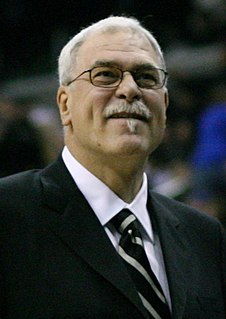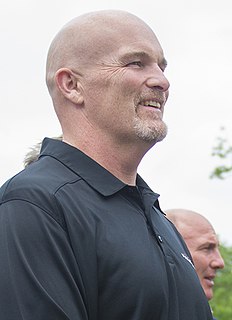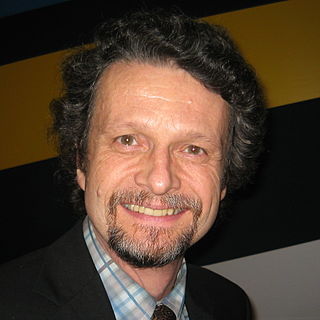A Quote by Phil Jackson
I think the most rewarding part of the job, and I think most coaches would say it, is practice. If you have it, a very good practice in which you have 12 guys participate, and they can really get something out of it, lose themselves in practice.
Related Quotes
The only thing I can say that is not bullshit is that you do have to learn to write in a way that you would learn to play the violin. Everybody seems to think that you should be able to turn on the faucet one day and out will come the novel. I think for most people it's just practice, practice, practice, that sense of just learning your instrument until - when you have an idea on the violin, you don't have to translate it into violin-speak anymore - the language is your own. It's not something you can think your way into, or outsmart. you've just got to do it.
I am very athletic, actually, and I'm good at most sports. But I was never a successful athlete, because I have a lot of trouble with authority. To be a good athlete, you have to have sort of a military attitude. You have to enjoy being coached, and that was not something I ever liked. But more than that, I don't like practice, and coaches hate anybody that doesn't like practice. If you saw me throwing a football, you'd say, "Wow, he knows how to throw a football." But put me on a field, I'm not gonna stand out.
To think that practice and realization are not one is a heretical view. In the Buddha Dharma, practice and realization are identical. Because one's present practice is practice in realization, one's initial negotiating of the Way in itself is the whole of original realization. Thus, even while directed to practice, one is told not to anticipate a realization apart from practice, because practice points directly to original realization.
It was hard to become an astronaut. Not anywhere near as much physical training as people imagine, but a lot of mental training, a lot of learning. You have to learn everything there is to know about the Space Shuttle and everything you are going to be doing, and everything you need to know if something goes wrong, and then once you have learned it all, you have to practice, practice, practice, practice, practice, practice, practice until everything is second nature, so it's a very, very difficult training, and it takes years.






































